My agent is shopping my new novel, The Narrow Place, around to editors right now. I’m a slightly nauseated mix of hopeful and terrified about the whole thing, which is, I think, a fairly reasonable response to putting years of hard, vulnerable work in front of people who have the power to either publish or reject it, and hope that they fall in love. It turns out that this part of the process doesn’t get easier with time and repetition.
The best trick I know for managing this sticky in-between time—which can be a matter of a couple of weeks or SIGNIFICANTLY longer, and there’s no predicting how it will go—is to throw myself into the next project, so I’ve gone all-in on planning and daydreaming for the next novel. The Narrow Place is about grief, exile, and Jewish identity in the diaspora. It draws heavily on Kabbalah and medieval Spanish Jewish history, and so required a lot of research. Like, a LOT of research. Books, articles, research trips to Spain funded by a project grant... (poor me)
The novel before that, which my agent and I have decided to table for now, in favor of the The Narrow Place (long story, for another time) is about fascism, Federico García Lorca, and the Spanish Civil War, and also required significant research. (Books, articles, research trips to Spain... I’m telling you, I have suffered.)
My first novel, The Revolution of Every Day, also required significant research. The common factor here, obviously, is me. The truth is that I love to research. Like most writers, I love to read, and regularly develop and indulge in obsessions, and of course those obsessions turn up in my books. Also, research is just fun. You get to engage deeply with your project on a level that isn’t about “getting it right.” There’s no pressure in the research stages—it’s all learning and exploration and possibility.
That said, research-heavy novels are a slower sort of work, and I was craving a new writing experience. When I finished The Narrow Place, I told myself that for the next novel I would write something quick and breezy that required no research. Just pure invention and imagination. Just to see what it would be like. That resolve fell apart almost immediately once I started daydreaming my way around the possibilities of the new story. My initial kernel of an idea of a novel set in NYC in 1995 opened up to include a storyline that takes place in 1954, among a group of writers in New York. From there, my brain of course went straight to the Beat writers, and from there down a rabbit hole of narrative what-ifs.
From age fifteen to around seventeen or so, I was obsessed with the Beat writers. I couldn’t get enough Ginsberg or Burroughs, tracked down books by Gary Snyder and Amiri Baraka, developed a massive crush on Kerouac... All of that.
(You, too? Yeah.)
Notice that I only mentioned male writers there? Yep. That fact entirely escaped me at the time. Sure, there were some women writers in some of the anthologies I had, but they didn’t spark my imagination in the same way. What can I say...I was young and it was the late 80s and I was a product of my time. The men were centered in everything I read about the Beats, and my teenage brain simply accepted that the men must have been the ones worthy of the attention. But now, considering setting part of the new novel in the world of the Beat writers, that disparity is all that I can see, and so I want to look directly at that imbalance.
Why is it that the men got nearly all of the glory and the fame from that scene? It wasn’t that the women were lesser talents. Not even close. It wasn’t that women were any less involved in founding and editing the most influential literary journals of the movement. History is told by those in power, yeah? So...that. The same old story. I’m going to take that on in this new novel. And so that means research. That means looking at the women of the Beat generation, which I failed to do when I was younger. Here’s where I’m beginning. But rabbit holes run deep, and I expect this pile to grow:
This isn’t as rigorous a sort of research as delving into Kabbalah (the work of a lifetime, and I’ve only begun) or the Spanish Civil War, but I want to get it right—whatever that ends up meaning—out of respect for the women I overlooked in the past: my literary foremothers of a sort, who I dismissed and took for granted, like the spoiled child I was, beneficiary of artistic opportunities and privileges won through their labor.
One thing that I’m particularly curious about as I begin... Apart from Ginsberg, the writing of the Beats hasn’t really held up for me. As an adult, I no longer care for most of it, though it was exciting to me as a teen. It’s going to be interesting to see how the work of the women lands with me, and how it feels to write about a movement that I was absolutely obsessed with once, but that no longer resonates so much with the reader and writer I am now. I’ll report back on that.
Upcoming class!
Revision Strategies One-Day Seminar
Sunday, May 14, 2023
10:30-1:30pm Pacific Time
1:30-4:30pm Eastern Time
Meeting via Zoom
$80
Class size: 15 studentsRevising your writing can be an intimidated, overwhelming experience, but it doesn’t have to be. In this 3-hour seminar, I’ll share the step-by-step process that I use to revise my own novels, stories, and essays. You’ll learn specific techniques to help you analyze your work, so you can see the big picture as well as all of the intricate moving parts, and then revise it to a successful final draft. This is a hands-on experience, with lectures and in-class exercises designed to lead you through the process. Bring a draft of a story or essay, or a novel excerpt that you’d like to work on. We’ll talk about the exercises and there will be plenty of time for questions, but participants won’t be reading their own work aloud to the group, so feel free to bring raw pages you don’t feel ready to share.

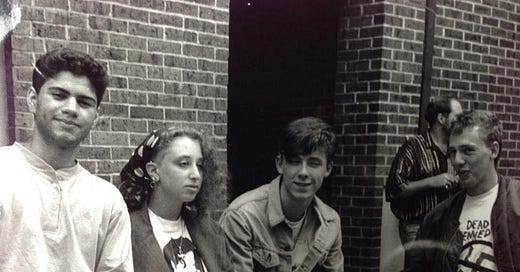



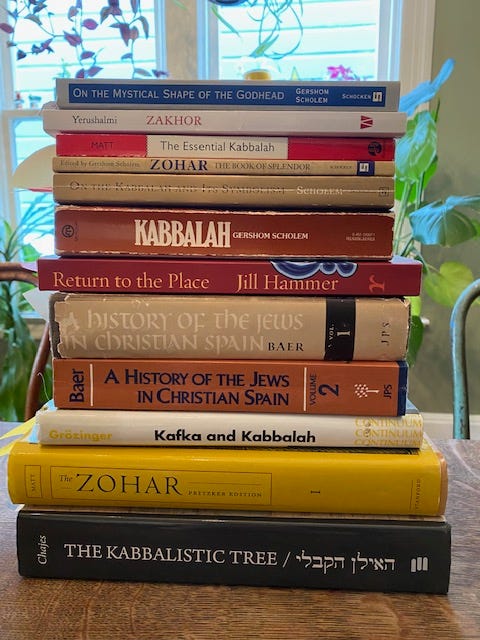
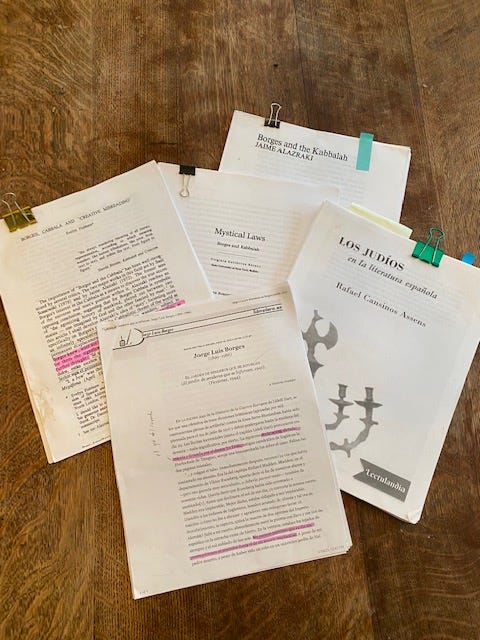
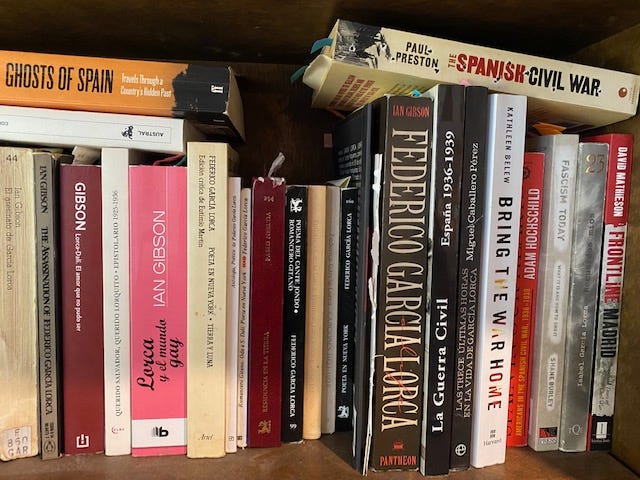
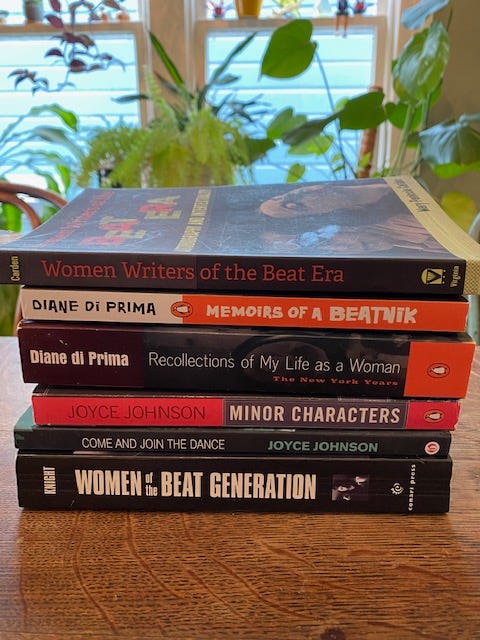
Re-examining a relationship to the Beats as an adult definitely gives me feelings. Excited to see what you do with this and can't wait to read the new novel!
I love this and am so excited to see where this path leads you. Although I’m a decade behind you I also gravitated towards the beats and honestly Ginsberg and Gary Snyder are the only two who hold up for me. I can’t wait to see what you find. I’m also such a huge fan of research, which is good and bad.
And- sending the best best vibes that this current sub finds its deserved champion. Can’t wait to read it.